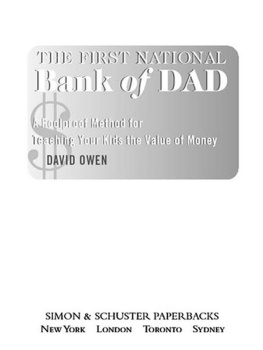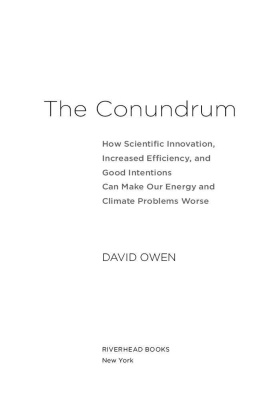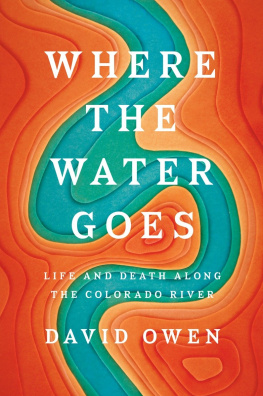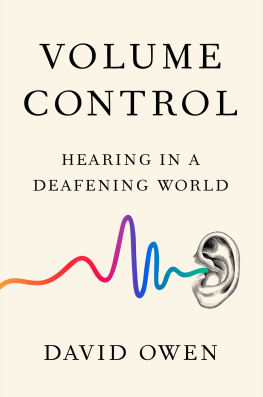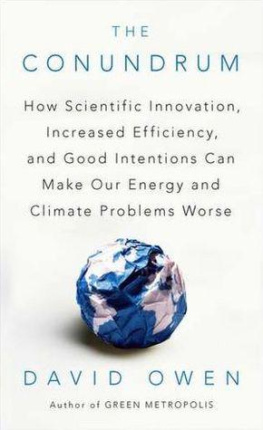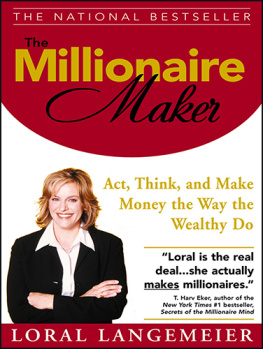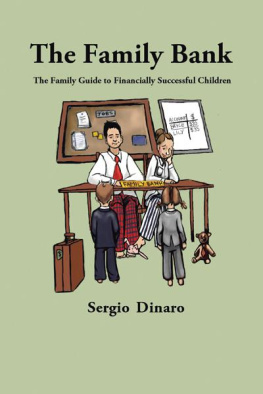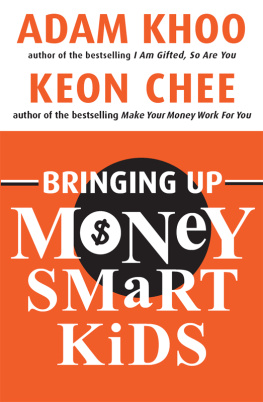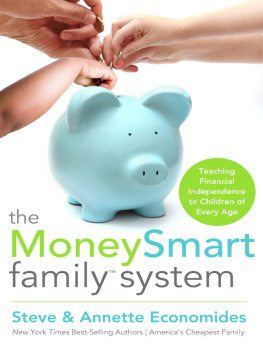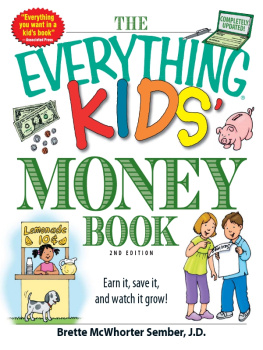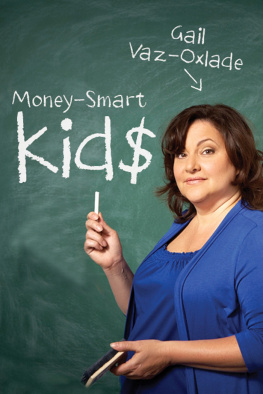David Owen - The First National Bank of Dad: The Best Way to Teach Kids About Money
Here you can read online David Owen - The First National Bank of Dad: The Best Way to Teach Kids About Money full text of the book (entire story) in english for free. Download pdf and epub, get meaning, cover and reviews about this ebook. year: 2007, publisher: Simon & Schuster, genre: Detective and thriller. Description of the work, (preface) as well as reviews are available. Best literature library LitArk.com created for fans of good reading and offers a wide selection of genres:
Romance novel
Science fiction
Adventure
Detective
Science
History
Home and family
Prose
Art
Politics
Computer
Non-fiction
Religion
Business
Children
Humor
Choose a favorite category and find really read worthwhile books. Enjoy immersion in the world of imagination, feel the emotions of the characters or learn something new for yourself, make an fascinating discovery.
- Book:The First National Bank of Dad: The Best Way to Teach Kids About Money
- Author:
- Publisher:Simon & Schuster
- Genre:
- Year:2007
- Rating:5 / 5
- Favourites:Add to favourites
- Your mark:
The First National Bank of Dad: The Best Way to Teach Kids About Money: summary, description and annotation
We offer to read an annotation, description, summary or preface (depends on what the author of the book "The First National Bank of Dad: The Best Way to Teach Kids About Money" wrote himself). If you haven't found the necessary information about the book — write in the comments, we will try to find it.
Most parents do more harm than good when they try to teach their children about money. They make saving seem like a punishment, and force their children to view reckless spending as their only rational choice. To most kids, a savings account is just a black hole that swallows birthday checks.
David Owen, a New Yorker staff writer and the father of two children, has devised a revolutionary new way to teach kids about money. In The First National Bank of Dad, he explains how he helped his own son and daughter become eager savers and rational spenders. He started by setting up a bank of his own at home and offering his young children an attractively high rate of return on any amount they chose to save. If you hang on to some of your wealth instead of spending it immediately, he told them, in a little while, youll be able to double or even triple your allowance. A few years later, he started his own stock market and money-market fund for them.
Most children already have a pretty good idea of how money works, Owen believes; thats why they are seldom interested in punitive savings schemes mandated by their parents. The first step in making children financially responsible, he writes, is to take advantage of human nature rather than ignoring it or futilely trying to change it.
My children are often quite irresponsible with my money, and why shouldnt they be? he writes. But they are extremely careful with their own. The First National Bank of Dad also explains how to give children real experience with all kinds of investments, how to foster their charitable instincts, how to make them more helpful around the house, how to set their allowances, and how to help them acquire a sense of value that goes far beyond money. He also describes at length what he feels is the best investment any parent can make for a child -- an idea that will surprise most readers.
David Owen: author's other books
Who wrote The First National Bank of Dad: The Best Way to Teach Kids About Money? Find out the surname, the name of the author of the book and a list of all author's works by series.

